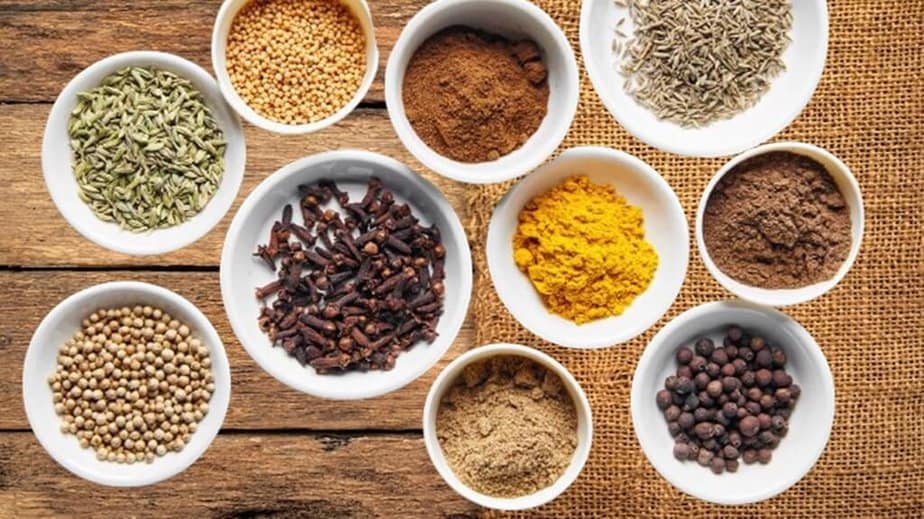Ever wonder if your spice rack could be hiding secret weapons against insulin imbalance? Well, buckle up, because we’re about to embark on a flavorful journey through nine spices that might just be the unsung heroes of blood sugar regulation.
First things first, let’s talk insulin. This little hormone is like your body’s traffic cop, directing glucose where it needs to go. When it’s working right, it’s smooth sailing. But when things go haywire? That’s when the trouble starts. Insulin imbalance can lead to a whole host of issues, from feeling like you’ve been hit by a truck (hello, fatigue!) to more serious conditions like diabetes.
Now, before you panic and swear off carbs forever, here’s some good news: Mother Nature’s got our backs. Turns out, some common spices might help keep our insulin levels in check.
Cinnamon
You know that warm, comforting smell that makes you think of grandma’s kitchen? Yeah, that’s doing more than just making your mouth water. Cinnamon’s got some serious mojo when it comes to insulin sensitivity. It’s like a cheerleader for your cells, encouraging them to respond better to insulin’s signals. Plus, it can help lower fasting blood sugar levels. Sprinkle it on your morning oatmeal or add a dash to your coffee – your pancreas will thank you.
Turmeric
This vibrant yellow spice isn’t just pretty to look at. Its active compound, curcumin, is a powerhouse of anti-inflammatory and antioxidant properties. It’s like a personal trainer for your metabolism, whipping those cells into shape and improving their response to insulin. Feeling fancy? Try a turmeric latte or add it to your scrambled eggs for a golden start to your day.
Ginger
Ginger’s not just for settling upset stomachs or spicing up your stir-fry. This knobbly root is a blood sugar-balancing ninja. It helps lower blood sugar levels and gives your insulin sensitivity a boost. Plus, it’s great for digestion and fighting inflammation. Ginger tea, anyone?
Fenugreek
Fenugreek might not be as famous as some of its spice cabinet buddies but don’t underestimate this little seed. It’s packed with soluble fiber, which is like a traffic cop for your digestive system, slowing down the absorption of carbs. This gives your body more time to deal with glucose, potentially improving insulin sensitivity and lowering fasting blood sugar levels. Try adding crushed fenugreek seeds to your curries or stews.
Cloves
These little flavor bombs aren’t just for holiday baking. Cloves contain compounds that might help your insulin function better and keep your blood sugar levels steady. Plus, they’re loaded with antioxidants. Win-win! Try studding an onion with cloves next time you make soup – your taste buds (and your pancreas) will be in for a treat.
Cumin
Cumin seeds aren’t just for adding depth to your chili. These little guys might help regulate blood sugar levels by enhancing insulin sensitivity and reducing inflammation. They’re also great for digestion. Toasted cumin seeds make a great addition to salads or roasted veggies.
Black Pepper
Don’t overlook this common table spice! Black pepper contains piperine, which not only helps your body absorb nutrients better but might also improve insulin sensitivity. It’s like a little matchmaker, helping your cells and insulin get along better. A few grinds on your food could do more than just add flavor!
Cardamom
This sweet and fragrant spice isn’t just for chai tea. Cardamom might help improve insulin sensitivity and lower blood sugar levels. It’s also great for digestion and gut health. Try adding a pod or two to your next pot of rice for a fragrant and potentially health-boosting twist.
Nutmeg
Last but not least, we have nutmeg. This warm spice contains compounds that might help improve insulin sensitivity and regulate glucose metabolism. A little goes a long way, so try grating a bit into your next smoothie or sprinkling some on your morning coffee.
Now, before you go dumping your entire spice rack into a mug, here’s a simple recipe to get you started:
The Ultimate Spice Brew
In a mug, mix half a teaspoon each of:
- Cinnamon powder
- Turmeric powder
- Ginger powder
- Crushed fenugreek seeds
- Crushed cloves
- Cumin seeds
- Crushed black pepper
- Cardamom powder
- Crushed coriander seeds
Pour 1-2 cups of warm water over this spice mix, give it a good stir, and let it steep for a few minutes. Strain if you like, or leave the spices in for an extra kick.
Remember, while these spices show promise in helping manage insulin imbalance, they’re not a magic cure-all. A balanced diet, regular exercise, and maintaining a healthy weight are still key players in the game of metabolic health. As always, if you’re dealing with insulin issues, check with your doctor before making any major changes to your routine.
Read next: Diabetes Risks Mitigation: Your 9-Step Health Plan
